The Ideology of Bill Hicks: Defiance Through Comedy
Bill Hicks has stood out in the history of comedy as part of an exceptional few, including George Carlin and Lenny Bruce, who went against the tide. Hicks was more than a stand-up comedian, he was a social commentator challenging accepted notions of 1980s and 90s American society. Will Kaufman argued Hicks suffered ‘the internal conflict between the social critic who demands to be taken seriously and the comedian who never can be’ [1]. This underlines Hicks’ exceptional position as a stand-up comedian who challenged conventional values yet was not appreciated during his time. Hicks’ defiance against America’s unquestioning engagements of wars, immoral politics and vast commercialisation of music might have ostracised him from his contemporaries, yet Hicks’ views are well-known and relevant twenty years after his death. This article aims to contextualise Hicks’ ideology within his comedy in relation to 1980s and 90s American commercialism, politics and religious values to emphasise Hicks’ unconventionality.
Hicks’ Ideology on Drugs
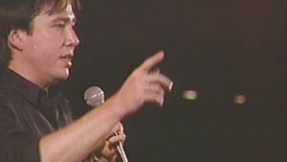
The War on Drugs campaign began in 1971 when Richard Nixon declared drugs as ‘public enemy number one’ [2]. The War on Drugs issued numerous hard-hitting polices costing billions of dollars, yet resulting in little success. Hicks conveyed the War on Drugs’ failure not only in a sarcastic comment to his audience, “there’s a war on drugs… and you’re winning!”, but also by recognising its wider hypocrisy. Marijuana was a target within the War on Drugs’ agenda. This disgusted Hicks who cited Marijuana’s effects in contrast to its portrayal as a destructive drug. Hicks frequently referenced ‘This Is Your Brain on Drugs’ commercials as a flaw in American societies’ proclaimed anti-drug stance. Hicks noted these commercials would play alongside Budweiser commercials, “and then the next commercial is this Bud’s for you. C’mon everybody, let’s be hypocritical bastards”. This was a significant argument against popular opinion within 1980s and 90s American society, where leading political and anti-drug campaigners like Reagan and Bush Senior were adamant that drugs (such as Marijuana) stay illegal. Reagan had referred to Marijuana as ‘equal in brain damage to being on Bikini Island during an H-bomb blast’ [3], a common notion embedded within the War on Drugs’ agenda.
Hicks continued to defy the War on Drugs’ agenda when explaining his own experiences with Marijuana compared to his once excessive usage of alcohol. Hicks regularly quizzed his audiences about the contrast between Marijuana and alcohol using observational humor to ask “if you’re at a ball game or a concert and someone’s really violent and aggressive and obnoxious, are they drunk or are they smoking pot?”. When his audience responds they were drunk, Hicks elates “wow! we all know the truth”. Despite Hicks passionately advocating this truth, it remained a minority opinion as the War on Drugs continued with further sanctions. Yet Hicks attacking the War on Drugs is seen today as part of his defiant ideology against the status quo of 1980s and 90s America.
Hicks’ Ideology on Christianity
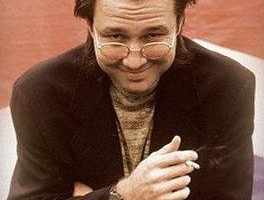
Although Hicks had been raised a Southern Baptist, he soon disregarded the faith by questioning the Bible’s truth. During Hicks’ prominent rise as a stand-up comedian, Ronald Reagan and George Bush Senior were American Presidents openly conveying their strong religious beliefs relating to America’s deep-seated Christianity. Reagan had been quoted as saying ‘if we ever forget that we are one nation under god, then we will be a nation gone under’ [4] and Bush Senior was more direct stating, ‘I don’t know that atheists should be considered as citizens, nor should they be considered patriots. This is one nation under God’ [5]. These deep-seated Christian beliefs, which were shared amongst a large part of America’s population, made Hicks’ comments on religion controversial.
Hicks continuously questioned the contradictions within Christianity wondering how is God meant to be loving when “eternal suffering awaits anyone who questions God’s infinite love”. This also connected to campaigns led by hard-line Christians banning pornography with Hicks stating why would they be against pornography if the Bible says to be “fruitful and multiply”. In an era where Televangelists were wide spread and Americans proclaimed themselves as acting under the guise of Christianity, Hicks was angered by such blind faith. He described his discussions with Christian fundamentalists when he asked about dinosaur fossils. “God put those there to test our faith” replied the Christian fundamentalist, which clearly infuriated Hicks. Similarly Hicks questioned why Televangelists like Pat Robertson called themselves Christians when declaring to their followers support for Nuclear armament and denouncing non-Christians as “termites”. “Cause I know, if Jesus were here, he’d probably have an Uzi on him”, Hicks responded to the contradictions of Christianity. Hicks criticising these contradictions which were frequent within Christianity was a stern challenge to America’s blind faith. Hicks’ attacks on Christianity continued to show his defiance against the status quo of a nation which saw itself under God’s guidance.
Hicks’ Ideology on Music
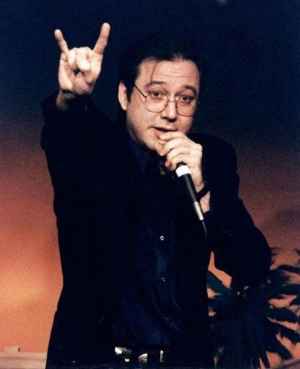
In an era where the music charts was filled with pop songs and corporate-produced singers, Hicks targeted them in what he saw as soulless music. Hicks questioned why then-teenage sensation Debbie Gibson had a number one album in America and staying in the charts for almost a year [6], “shut up and go back to the mall that spawned you!”, conveying his disgust at what he saw as corporate America infiltrating music with rigorous force. Hicks also wondered why so-called rock stars were taking part in product placements like George Michael in a Diet Coke commercial, “what kind of Reagan wet dream is this?”, asked Hicks. Hicks was again questioning why music was advancing towards product placement using singers as sale reps. Singers and musicians willing to take part in product placement for Hicks was defiling music and denouncing its integrity.
Hicks further conveyed this with his claim that “any performer that ever sells a product on television is now and forever and for all eternity removed from the artistic world“. This was Hicks criticising those who he saw as sell-outs who coincidentally were popular in the mainstream. Hicks passionately advocated music which contained deeper meanings and beliefs citing musicians like Jimi Hendrix who played “from their fucking heart!” and remained true to their values by not selling out. Hicks evoked his love for Hendrix’s sincerity as an musician by describing a darkly-comical fantasy of Hendrix decapitating Debbie Gibson as a graphic representation of sincere music destroying manufactured pop music. Hicks’ attack on music was against the popularity of music in 1980s and 90s America continuing his defiance.
Hicks’ Ideology on Politics
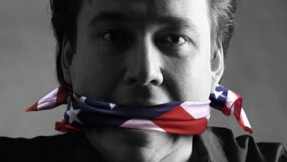
Hicks made no reservations about his political beliefs contrasting with the Republican party, who dominated America’s political landscape at the time. A recurring theme within Hicks’ stand-up routine was his disagreements with the First Gulf War of 1990-91. The First Gulf War started as America’s response to Iraq invading Kuwait resulting in American victory and sanctions against Iraq. It was seen as acceptable for America to engage in the First Gulf War, yet Hicks went against this accepted notion by questioning America’s motives and the repercussions of their actions. Hicks noted the American Government previously selling weapons to Iraq and its unacknowlegment during the First Gulf War. “During the Persian Gulf War, those intelligence reports would come out: “Iraq: incredible weapons – incredible weapons. “How do you know that? Uh, well … we looked at the receipts. But as soon as that check clears, we’re goin’ in”. Hicks, instead of agreeing with America’s justification for the First Gulf War, was hilariously indicating the American Government’s involvement in selling weapons to foreign countries without understanding its repercussions. Therefore Hicks argued America was part of the problem rather than the solution, an opinion not shared in mainstream thought.
Hicks continued to question America’s role in the First Gulf War stating, “there never was a war. How can you say that, Bill?. Well, a war is when two armies are fighting.” Hicks was questioning if the Iraqis were as antagonistic as George Bush Senior and other political figures had lead Americans to believe. Hicks continued to attack American politics even after Bill Clinton became President. Hicks felt no matter if a President was Republican or Democrat, they stay in line to the ‘real’ leaders of America. In a darkly humorous segment Hicks wondered if newly-elected Presidents are placed in a screening room and shown the JFK assassination from a never seen before angle. “Any questions?” asks the ‘real’ leaders – “just what my agenda is”, Hicks states, imitating a belittled President. Hicks, in spite of his humor, was stating in very serious terms American politics were insufficient and corrupt, not agreeing with mainstream option.
Analysing Hicks’ stance on issues of drugs, Christianity, music and politics in terms of his ideology shows Hicks’ defiance through comedy. Every performance Hicks gave showed himself to be an honest critic of values America held in high esteem. Hicks was relaxed about drugs whereas American public opinion thought otherwise, questioning Christianity when others followed it with blind faith, devoted to music’s deeper meanings instead of accepting corporate/manufactured pop and contempt for politics whilst others supported it with patriotism. Hicks was never shaken by America’s conventions and defiled them to humorously reveal their flaws. This is why Hicks stands out in comedy history as part of an exceptional few who were more than just stand-up comedians.
Works Cited
1. Kaufman., W. 1997. The Comedian as Confidence Man: Studies in Irony Fatigue. Wayne State University Press
2. Nixon., R. 1971. ‘Special Message to the Congress on Drug Abuse Prevention and Control’. The American Presidency Project. [Online]. Available From: http://www.presidency.ucsb.edu/ws/?pid=3048
3. Reagan., R. N/A. ‘Ronald Reagan Quotes’. Think Exist.com. [Online]. Available From: http://thinkexist.com/quotation/i_now_have_absolute_proof_that_smoking_even_one/337330.html
4. Reagan., R., N/A. ‘Words of Wisdom from the Old Gipper’. Baxter Country Republicans.com. [Online]. Available From: http://www.baxtercountyrepublicans.com/reagan.html
5. Bush., G. 1987. ‘Can George Bush, with impunity, state that atheists not be considered either citizens or patriots’. Positive Atheists.org. [Online]. Available From: http://www.positiveatheism.org/writ/ghwbush.htm
6. Anonymous., 2014. ‘Debbie Gibson – Chart History’. Billboard.com. [Online]. Available From: http://www.billboard.com/artist/300622/debbie+gibson/chart?f=305
What do you think? Leave a comment.

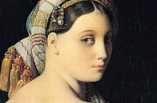
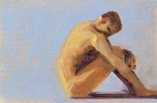
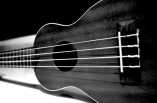

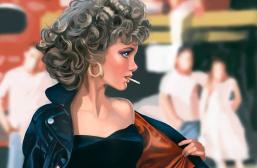

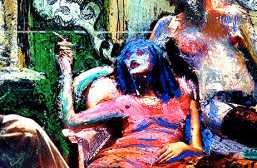

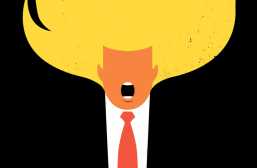
Always be missed, an absolute tragedy that Bill died so young. His analytical breakdown of global capitalism and the hypocrisy of the media was decades ahead of his peers RIP Bill.
Agree completely. His work is on the whole timeless, and like a great movie, album, book or piece of art, it can be revisited time and again without it seeming dated.
If he was still alive, he’d be in a mid life, mid career crisis, starring in mediocre Hollywood films or a comfortable sitcom and hoping that no one noticed him selling e-cigarettes in the UK or razors in Japan.
Personally I would have to disagree considering he passionately stated anyone who works in marketing and advertising should “kill themselves”.
Bill Hicks was a stultifyingly unfunny comedian, totally over rated.
There, I said it.
How so boren?
No, it’s because different people have different senses of humour. Your sense of humour and Bill Hicks weren’t the same.
Interesting article, Ryan. Thanks for sharing. I will have to check him out.
Thank you Danny. Trust me some of Hicks’ viewpoints are still relevant today.
I miss him. Time moves on but hardly changes.
I love a lot of Hicks’ stuff, his timing and his fluency with his material is just ridiculously funny.
George Carlin was better.
What’s your opinion of Richard Pryor?
Outstanding article on the archetype of edgy comedy.
Opposite of Alex Jones and Graham Hancock
Interesting that you mention this considering that a few years ago, an amusing conspiracy theory made the rounds stating that Bill Hicks never died; he just took up a new identity, which was Alex Jones. It’s an entertaining oddity and some food for thought.